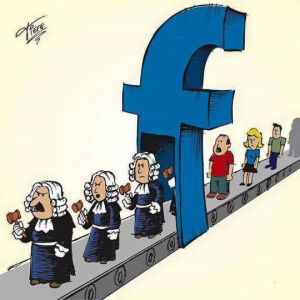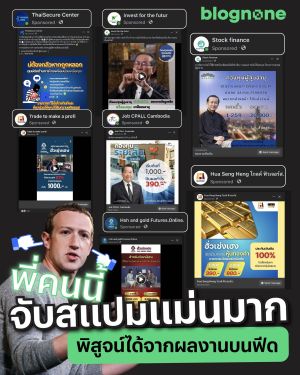Judgebook
จับแม่น จนไม่น่าให้อภัย รีพอตอะไรไปก็บอกไม่ผิดกฎชุมชน ชุมชนโจรสิไม่ว่า

JudgeBook: The Digital Panopticon of the Soul
Disclaimer: This is a satirical piece intended to provoke thought and discussion. It does not reflect the views of the author or any specific organization.
JudgeBook, the latest social media sensation, has turned its users into a digital jury, passing judgment on everything from the mundane to the profound. With its sleek interface and addictive algorithm, the platform has managed to ensnare millions of users in its algorithmic web. But beneath the veneer of harmless fun lies a more sinister reality: JudgeBook is the digital panopticon of the soul, a place where our innermost thoughts and desires are laid bare for public scrutiny.
The Algorithm Knows
At the heart of JudgeBook is an algorithm that is eerily adept at predicting user preferences. By analyzing likes, comments, and viewing habits, the platform creates a personalized feed that is tailored to each individual user. This hyper-targeted content is designed to keep users engaged for as long as possible, creating a digital addiction that is difficult to break.
The platform’s suggested content feature is particularly insidious. By recommending posts and reels that are designed to appeal to our deepest desires and fears, JudgeBook is able to manipulate our emotions and behavior. It's like having a personal digital therapist, except instead of offering advice, it's simply feeding us more of what we want to see.
Community Standards: A Double-Edged Sword
JudgeBook’s Community Standards, ostensibly designed to protect users from harmful content, are in reality a tool for maintaining the platform’s bottom line. While the company claims to prioritize user safety, its actions often speak louder than its words. The algorithm is constantly fine-tuning itself to maximize engagement, even if it means promoting content that is divisive, harmful, or simply plain wrong.
The recent earnings report from Meta, JudgeBook's parent company, provides a clear indication of the platform's priorities. Despite the company's claims of being committed to creating a positive online environment, the focus on revenue growth is evident. As long as the algorithm continues to deliver profits, the company will have little incentive to make meaningful changes to its platform.
The Digital Matrix
JudgeBook is more than just a social media platform; it is a digital matrix that shapes our perceptions of reality. By controlling what we see and how we see it, the platform is able to manipulate our thoughts and beliefs. It's a world where likes and shares are the currency of the realm, and where our self-worth is determined by the number of followers we have.
In the end, JudgeBook is a cautionary tale about the dangers of unchecked technology. It is a reminder that the algorithms that power our digital lives have the potential to shape our society in profound ways. As we continue to navigate the complexities of the digital age, it is imperative that we remain vigilant and demand transparency from the companies that control our online experiences.
User are the Product
"If something is free, you are the product."
JudgeBook, in the grand scheme of late-stage capitalism, operates on a simple principle: If something is free, you are the product. While the platform may seem like a benevolent overlord dispensing endless streams of entertainment, the reality is far more sinister.
Every like, comment, and share generates valuable data, the lifeblood of the modern economy. JudgeBook isn't merely a social platform; it's a sophisticated data-harvesting machine. Your preferences, habits, and even your deepest fears are meticulously cataloged, analyzed, and packaged for sale to advertisers and other interested parties.
The allure of free content is irresistible, but it comes at a price. Your privacy, your attention, and even your sense of self can be compromised in the pursuit of endless scrolling. So, the next time you find yourself lost in the digital abyss of JudgeBook, remember: you're not just a user; you're a commodity.
The platform's "Community Standards" are merely a fig leaf to cover up its true intentions. While it may seem like a benevolent overlord protecting its subjects, the reality is that JudgeBook is more interested in protecting its bottom line; their income. After all, outrage and controversy are just as engaging as cute cat videos.
In the grand tapestry of the digital age, JudgeBook is a cautionary tale about the perils of unchecked corporate power. As users, we must become more aware of the data we share and the value it holds. Only then can we hope to regain control of our digital lives.
JudgeBook Videos
A platform where you can post anything, literally. Even stolen content as well and no one will care about originality.
Also, where is the fucking Video sound control option which persist thru sessions? I fucking hate to play video and have to adjust the sound because very creator is ass about their content audio and it's fucking deafeningly loud.
Facebook doesn't Need You...
Facebook Simply Doesn’t Need You: The Harsh Reality for Small Businesses and Content Creators
In the early hours of March 18, 2025, a tweet from X user () sparked a conversation that resonates with many small businesses and content creators: “Happened to various content creators I knew, when the page reaches certain point that people would report you for anything they would ax you immediately. I actually weaned off fb a while ago it’s good for me. Most of my sponsored posts are illegal online gambling anyway.” This post, replying to a thread by , highlights a growing frustration with Meta’s (Facebook’s parent company) handling of account suspensions and its apparent indifference to smaller users—suggesting a chilling reality: Facebook simply doesn’t need you.
The Context: A Platform Built for Giants, Not the Little Guy
The original post by on March 17, 2025, set the stage for this discussion, lamenting that “Facebook for business is essentially unusable now. All your competition has to do is mass report you for anything, and you will be suspended by AI (this even during ad campaigns). So if you’re not a massive and old operation, save your money. doesn’t care about you.” This sentiment isn’t new, but it underscores a systemic issue for smaller entities on the platform. Facebook’s algorithms, designed to enforce community guidelines and protect its vast ecosystem, often overreact to reports—whether legitimate or malicious—leading to swift suspensions that can devastate businesses or creators who rely on the platform for visibility and revenue.
’s response adds a layer of irony and defiance. By admitting to promoting “illegal online gambling” through sponsored posts, the user reveals a loophole exploited by some, but also highlights Meta’s strict (and sometimes inconsistently enforced) policies on advertising, particularly around gambling. Meta’s own documentation, as seen in its Online Gambling and Games advertising policy, bans such content unless it meets specific regulatory requirements—a rule many smaller operators skirt, often at their own peril. When caught, the result is often an immediate account suspension, with little recourse or appeal for smaller users.
Why Facebook Doesn’t Need You
The core issue here isn’t just about enforcement but about priorities. Facebook, now under the umbrella of Meta, has evolved into a behemoth focused on scale, data, and major advertisers. As web search results and reports from 2025 indicate, Meta has faced numerous lawsuits, regulatory investigations, and public backlash over its handling of content, privacy, and account suspensions—yet it continues to prioritize large corporations and high-value users over smaller businesses or independent creators.
For instance, a 2024 article from try.commentsold.com on social media account suspensions notes that businesses must “play by the rules” to avoid being “put in Facebook jail,” but the reality is that the rules are often opaque, enforced by AI with 97% accuracy (as claimed by Meta), and subject to abuse by competitors or trolls. Smaller users, like the ones and describe, lack the resources or influence to navigate or challenge these systems. Meanwhile, massive operations—think global brands or legacy media companies—have dedicated teams and legal budgets to ensure compliance and appeal suspensions, giving them an unfair advantage.
Meta’s recent actions, such as banning Russian state media in 2024 or removing news content in Canada due to regulatory pressures, show a company willing to make bold moves to protect its interests or comply with governments. But for the average small business or content creator, the message is clear: if you’re not generating massive revenue or aligning with Meta’s strategic goals, you’re expendable. The platform’s vast user base—billions strong—means it can afford to lose individuals or small entities without blinking.
The Human Cost: Frustration and Exodus
’s admission of “weaning off fb” reflects a broader trend. Many users, frustrated by arbitrary suspensions, invasive data practices, and a lack of support, are leaving Facebook for alternatives like X, Instagram (also owned by Meta, but with different dynamics), or niche platforms. For content creators, the digital landscape is already a “gallery filled with millions of paintings,” as described in a Quora post on the challenges of content creation—competing for attention is hard enough without the added risk of being silenced by an algorithm or mass reports.
The irony in ’s post—joking about illegal gambling while shrugging off Facebook’s loss—underscores a growing cynicism. If the platform doesn’t value you, why bother? For businesses, this can mean lost revenue, damaged reputations, and wasted ad spend, as warned. For creators like , it’s a signal to diversify and reduce dependence on a single platform that, frankly, doesn’t care.
What’s Next for the Little Guy?
So, what can small businesses and creators do in the face of a platform that doesn’t need them? The answer lies in diversification and resilience. Relying on multiple platforms—X, TikTok, LinkedIn, or even building a direct audience through email or personal websites—can mitigate the risk of a single suspension. Educating oneself on Meta’s community guidelines and advertising policies, as suggested by the try.commentsold.com article, is crucial, but so is recognizing when a platform’s costs (financial, emotional, or reputational) outweigh its benefits.
Meta’s focus on AI-driven enforcement and high-value partnerships suggests this trend won’t reverse anytime soon. As lawsuits and regulatory scrutiny mount—evidenced by investigations into Meta’s handling of illegal content, as noted in Wikipedia’s 2025 update—smaller users may find themselves increasingly marginalized. The platform’s sheer scale and data-driven approach mean it can thrive without you, but you can’t necessarily thrive without a strategy to navigate or escape its ecosystem.
Conclusion: A Wake-Up Call
’s tweet, nestled within a thread of frustration and defiance, serves as a wake-up call for anyone relying on Facebook for business or creativity. The platform’s indifference to smaller users isn’t personal—it’s business. With billions of users and a focus on big players, Facebook simply doesn’t need you. But you don’t need Facebook either. By diversifying, advocating for clearer policies, and building independent audiences, small businesses and creators can reclaim their power—and perhaps find platforms that actually value their presence. As the digital landscape evolves, the lesson is clear: don’t let any single giant dictate your fate.

